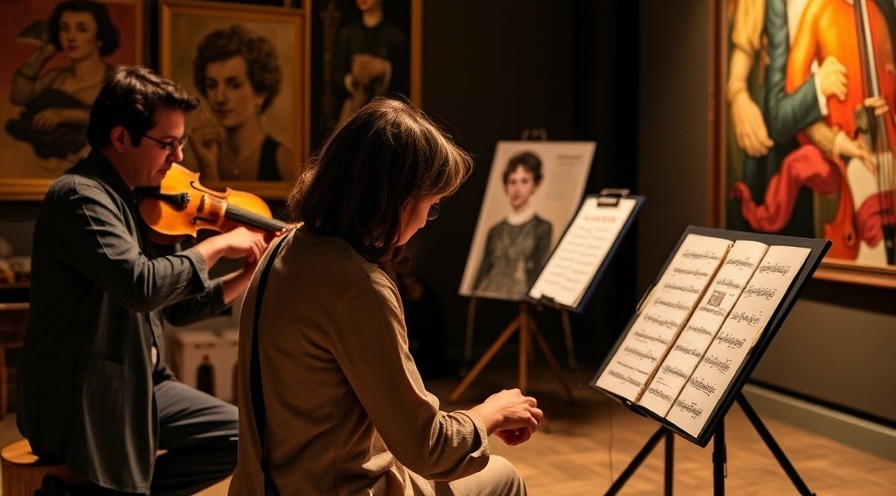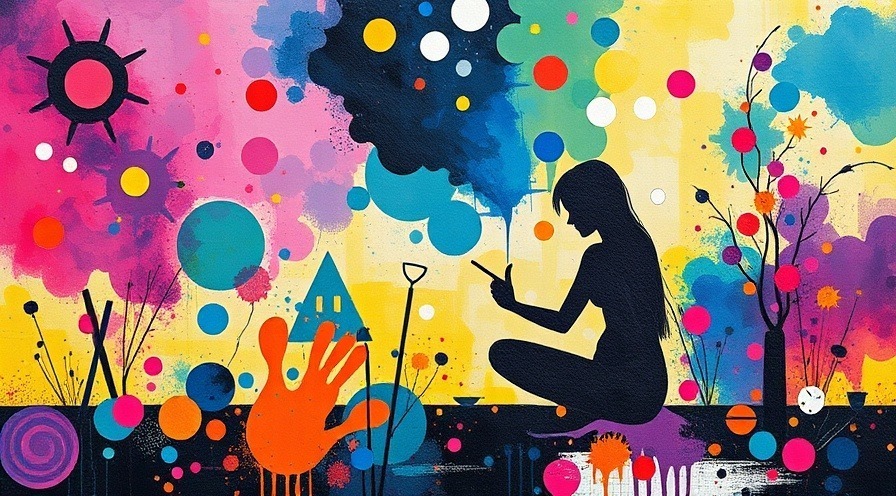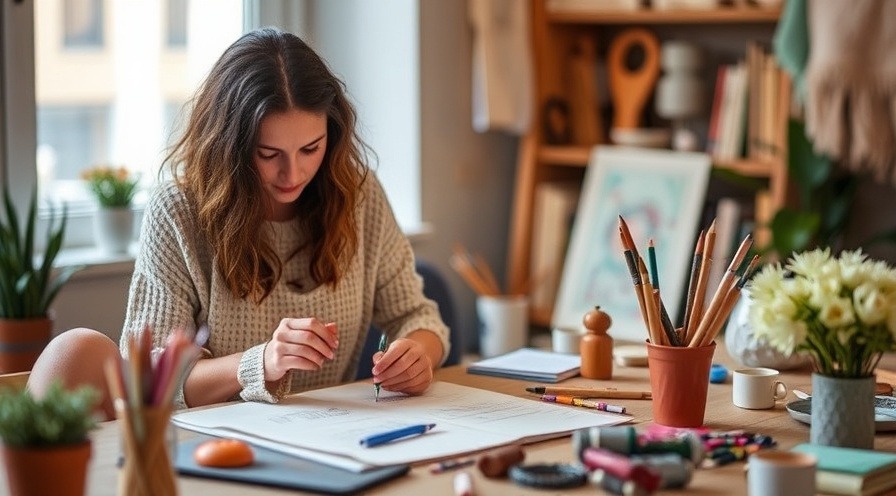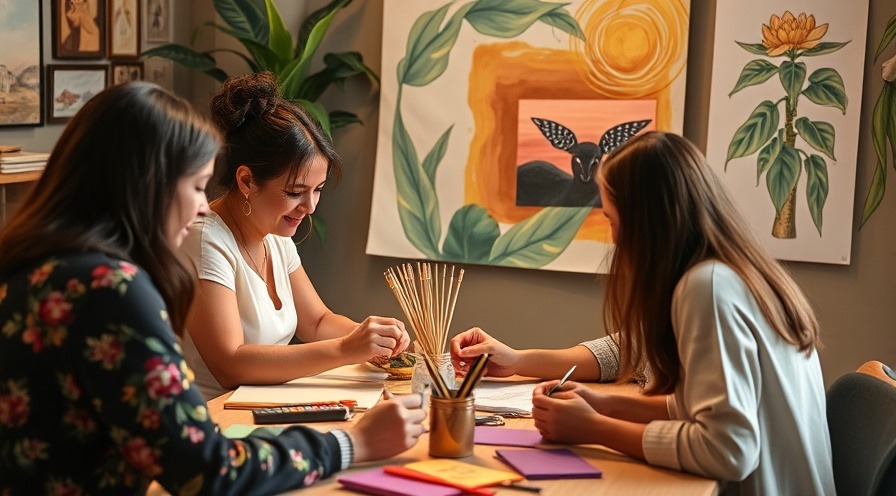
What is The Creative Powerhouse for Stress Management and Mental Well-being
In our fast-paced world, where demands constantly tug at our attention and worries often linger like uninvited guests, finding effective ways to manage stress is no longer a luxury, it's a necessity. Have you ever found yourself lost in an activity, time seemingly melting away as you focused on the task at hand, feeling a sense of calm wash over you?
Chances are, you were tapping into the incredible power of creativity. Often viewed as something frivolous, especially in recent decades, the act of creation, in its myriad forms, holds profound benefits for our mental health and our ability to effectively engage in stress management.
This isn't just anecdotal; evidence is mounting to support the vital role creativity plays in our overall well-being. Whether it's the rhythmic click of knitting needles, the vibrant strokes of a paintbrush, the melodic flow of a song, or the thoughtful crafting of words, engaging in the arts can be a powerful antidote to the pressures of modern life.
Looking for a creative hobby? Discover something new here: www.Hobbywide.com

As the insightful minds at MQ Mental Health remind us, "Creativity can be seen by some, perhaps in past few decades, as frivolous. But there is evidence to show that creativity helps our mental health and our stress management".
Consider the diverse applications of creative therapies in healthcare settings. Art therapy, for instance, has been successfully integrated into inpatient care to alleviate suffering associated with a range of conditions, including depression, anxiety, cognitive impairment and dementias, Alzheimer's disease, and schizophrenia.
Likewise, these imaginative activities are not limited to clinical environments; they can also help promote knowledge and positive behaviors in children and young people. This highlights the broad spectrum of benefits that creative engagement offers across different age groups and mental health challenges.
For one individual on their journey of mental health recovery, the absence of creative expression was keenly felt:
"For me personally, I realized in my ongoing journey of mental health recovery, that the days I didn’t create were the days I felt disconnected and more likely to experience intrusive thoughts or unhealthy coping strategies".
This deeply personal reflection underscores the intrinsic connection between creative output and inner equilibrium.

The act of "writing or drawing helps me see something new about my own thought process or feelings, it helps unblock something I’m struggling to communicate to myself let alone to others".
This quote beautifully illustrates how creativity can serve as a powerful tool for self-discovery and emotional processing, offering a unique avenue for understanding our inner landscape.
It's important to remember that "creating” doesn’t need to be for the sake of showing it to others. Creating is a way of showing ourselves to ourselves. It is expressing ourselves and exploring what it means to be human". This shift in perspective, from external validation to internal exploration, liberates us to embrace creativity in its purest form, focusing on the personal benefits rather than the pursuit of perfection or public acclaim.
Harnessing The Power Within
So, how can we tap into this potent force to better manage our own stress levels and nurture our mental health and physical health? The sources offer several compelling pathways to get started:
Be Mindful
Engaging in creative activities naturally fosters mindfulness, a state of present moment awareness that can significantly reduce stress levels. When we are engrossed in the texture of clay, the blend of colors, or the rhythm of a melody, our focus shifts to the "now," allowing anxieties about the past or future to recede.
This focused attention can help reduce anxiety and promote relaxation, and promote positive emotions and decrease cortisol levels, a hormone related to stress. Think of the meditative quality of repeating stitches in knitting or the absorption in the intricate details of a drawing.
Find a Distraction
When worries and stressors loom large, creative pursuits can offer a healthy and engaging distraction. Shifting our focus to a creative task helps divert our attention from negative thought patterns, fostering feelings of accomplishment and satisfaction.
Moreover, "creative art helps us cope with physical health problems and can be a valuable method to improve depression, anxiety and stress if you suffer with a condition such as stroke as it helps promote relaxation and calmness". This highlights the therapeutic potential of creative engagement even in the face of significant health challenges.
Looking for a new hobby? Discover something creative here: www.Hobbywide.com

Enter the 'Flow State'
Many creative activities have the remarkable ability to induce a 'flow state', a state of complete immersion and enjoyment in the present moment. In this state of deep concentration, worries and anxieties fade into the background, promoting profound relaxation and lowering stress hormones like cortisol. Whether it's losing yourself in a piece of music you're playing or becoming completely absorbed in the unfolding narrative of your writing, the flow state offers a powerful respite from stress.
Expressing Emotions
Art and creativity provide a vital outlet for expressing emotions and releasing pent-up feelings of stress and tension. They can serve as a powerful channel for emotions that are difficult to articulate verbally. "Art can be used as a therapeutic tool to help people and patients open up, share feelings, views and experiences as an indirect but clear form of communication". This underscores the unique ability of creative expression to bypass verbal barriers and facilitate emotional release and understanding.
Self-Care
Engaging in creative activities is a powerful form of self-care, nurturing feelings of self-worth and self-esteem. A 2021 study showed that engaging in creative pursuits was associated with greater well-being and lower stress levels during the COVID-19 pandemic. This recent finding highlights the resilience-building capacity of creativity in the face of widespread stress and uncertainty.

Helping Structure Your Time
Creative projects can provide a valuable sense of purpose and structure to our days, which can be particularly helpful in reducing anxiety about time management. Having "something to look forward to and providing a consistent plan for your brain and body" offers a tangible way to reduce stress built up through the day, week or month. The act of planning, executing, and seeing a creative project come to fruition can instill a sense of accomplishment and control, counteracting feelings of overwhelm.
Social Connection
Participating in group creative activities or sharing one's art with others can foster social connection and alleviate feelings of isolation and loneliness. "Going to the theatre, dancing, a concert or a comedy show can all help promote feelings of community and connection, which many of us have been lacking in the last few years and can have a positive impact on stress management and mental health". These shared experiences create opportunities for connection, belonging, and mutual support, all of which are crucial for managing stress and promoting well-being.
The impact of creativity on stress reduction extends beyond the psychological; many studies suggest that engaging in art and creative activities can have tangible physiological effects that reduce stress and promote well-being.
Whether through structured art therapy programs or simply embracing informal creative hobbies, integrating creativity into our stress management routine offers a demonstrably beneficial approach to lowering stress levels. This is particularly relevant given the recent periods of heightened stress many have experienced.

As MQ Mental Health aptly summarizes, "The power of creativity to reduce stress is multifaceted. From providing outlets for self-expression to inducing meditative flow states, creative pursuits offer a diverse number of stress-reduction benefits.
They enable us to reframe perspectives, regulate emotions, and engage in calming practices that ground us in the present moment". The beauty of using creativity for stress reduction and management lies in its inherent accessibility and versatility.
In an increasingly complex world, embracing creative practices is not merely a pastime; it's a powerful strategy for cultivating resilience, fostering personal growth, and developing a deeper understanding of ourselves and our surroundings.
It’s a practice that can be seamlessly integrated into our daily lives, adapting to various circumstances. Ultimately, creativity offers more than just a temporary escape from stress; it provides a transformative approach to managing life's challenges, promoting overall well-being, and enhancing our quality of life.
Conclusion
The insights from MQ Mental Health paint a compelling picture of creativity as a cornerstone of effective stress management and enhanced mental well-being. From fostering mindfulness and providing healthy distractions to enabling emotional expression and promoting social connection, the benefits are multifaceted and deeply impactful.

The personal experiences shared highlight the profound sense of connection and release that creative engagement can offer, serving as a vital tool for self-discovery and emotional regulation. The key takeaway is clear: incorporating creative practices into our lives, in whatever form resonates with us, is not just a pleasant diversion but a powerful and accessible pathway to inner peace and resilience.
We are all inherently creative beings, and by embracing this aspect of ourselves, we can unlock a potent force for managing stress, nurturing our mental health, and ultimately, enhancing our overall quality of life. So, pick up that pen, that instrument, that ball of yarn, or that mixing bowl – your journey to a less stressful, more vibrant life awaits.
*The information provided in this article is for informational purposes only. Always consult with a qualified healthcare professional before making any decisions regarding your health.
 Add Row
Add Row  Add
Add 




Write A Comment